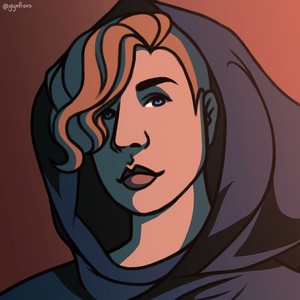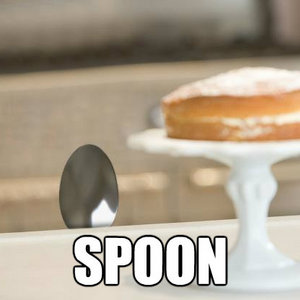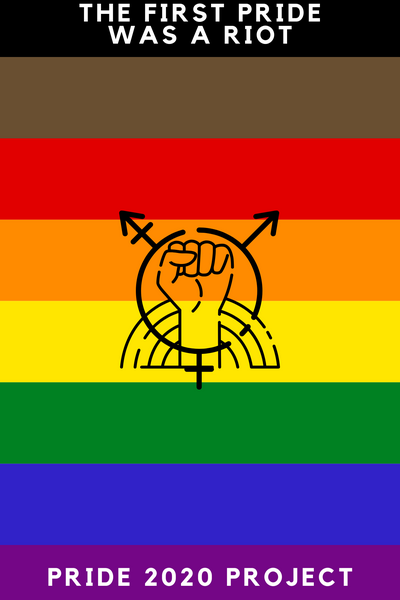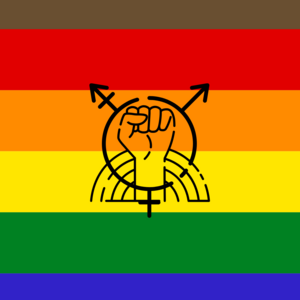Allyn Crowe is a writer from The Netherlands. Allyn uses his work as part of his advocacy for the charity Stonewall UK, and to raise awareness for mental health in the community.
Hello Allyn! Congratulations on becoming President of your university’s debate team! I heard there’s an interesting link to your work with that?
Yes! One of the main characters of my novel, Tristan, is part of the Oxford Union and a fervent debater. I had never joined a debate myself when I started writing the novel 1.5 years ago, and in order to learn more about it I joined the debating society of my own university – I enjoyed it so much that over the course of a year, I became the top novice debater, received a scholarship, and within a few weeks from now will officially be president of the entire society. I frequently joke that the reason I joined the debate union is gay romance, which is a pretty good way to start a conversation!
You’ve mentioned being enthralled at the moment with Kafka and Lovecraft. What is it about these authors that inspires you to write?
There is something intrinsically alluring about their struggles with aspects of mental health, psychological horror and the general sensation of unease and panic. To me, the way I read them, they really capture a snapshot of the human psyche, and I wish to replicate that, albeit more positively in my own novel. It inspires me to write, because despite the dread one might feel, there is also a sense of understanding as to what these characters go through – which I think is not often explored, and nowadays people are perhaps a little squeamish about trying to write the mindset of a person they aren’t, in fear of insulting or upsetting someone.
Personally I believe however that putting ourselves in the shoes of others, whether it be race, religion, sexuality or a mindset/morality, is the only way to develop ourselves, and that it is where one of the key aspects of writing lies: to create an understanding that either resonates with people that go through those feelings, or that gives your reader new insight into what it is like.
I believe that’s often overlooked in story-crafting, maybe because it’s not always glamorous, and not easy to get right, but when you do it lays a beautiful connection between the character, reader and author, one which I hope translates into a snippet of personal growth and a sense of solace.
You started writing really young after reading Narnia and Harry Potter. What made you continue to pursue writing into adulthood? Do you bring a bit of the magic from beyond the wardrobe or Platform 9 ¾ with you into your current works?
I did not pursue writing – writing pursues me, and it’s very tenacious. I truly can’t tell you what compels me to do it, and I’m not arrogant enough to ascribe it to genius or destiny or something like that, but I do believe it’s innate to me. I tried to stop before, under pressure from outside influences that told me it would be a waste of my intelligence, or that I would live a very hard, impoverished life if I tried, but it was like trying to stop a part of myself, and I’m not sure how anyone can do that without dying a little on the inside.
I didn’t really write from age 15 to around 20, and ironically that’s when I struggled most with things such as depression, my own identity as a bisexual trans-man, and what I expected from my future. I tried to become a scientist, and when that didn’t work, tried to do programming and system administration, and when that didn’t work, accounting – all with the misguided idea that those were better and more ‘worthy’ positions for me to have, but I could never shake that longing for writing and creating. In the end it gives me far more self-worth to write a story that resonates with people and to see that I can make happy through my novels.
I think that’s where the childhood wonder comes in as well; not necessarily in the novels themselves, but in me writing these books in the first place. The magic is in seeing an empty page, and bringing forth from it new worlds, people and emotions. Since starting my novel, I’ve come to understand that there aren’t that many people that can do that, and rather than pushing my talent aside, I’ve now embraced it.
I think it is fitting to end this answer with a quote from a Dutch writer, Harry Mulisch, who captured the sentiment rather well: ‘I wanted to write, and the money would come to me eventually – and if it stayed away, that would only be embarrassing for the money.’
A lot of readers have connected with the protagonists in your novel, Silence. Why did you decide it was a story that needed to be told?
I don’t think it was a story that needed to be told, per se. No story really needs to be told, until your readers have a need to read it. It started out quite simple, as a try-out to enter the last Tapas Writing Contest (good times, eh, KR?), and more or less to practise because I had never tried my hand at romance. Throughout the process it developed into the current-day protagonists, and once people started identifying with the struggles that I wrote, I knew I had a duty to my readers to tell the story of these characters.
I did have some basic idea of what I wanted to achieve with it though, especially once I rewrote the contest version to improve on it: which is combat some of the stereotypes that plague the genre of romance (and in particular gay romances). It seems to have slowed down a little bit nowadays, but back then the genre was rife with what could only be constituted as abuse hiding behind ‘damaged personalities’ and for the sake of ‘kinkiness’, 50 shades of grey style. I wanted to tell a story of damaged, struggling characters that instead supported one another and worked together as a couple to improve each-others’ lives. The readers connected with that, and I’d love to give them a satisfying conclusion sometime in the future, so they won’t be left hanging.
The current interviewer has no comment to make about beating you in Writer’s Camp. Bram and Leander were always honoured to have run the race beside Tristan and Hibiki.
I would have won if it weren’t for those meddling kids (and the copious amount of er… explicit experimenting).
You’ve mentioned that you don’t think your identity has shaped your work that much. Can you explain that in more detail?
I don’t think the author’s identity necessarily requires a place within the work, and I like to keep those two separate, otherwise I would just be writing about myself and that sounds rather narcissistic. If people want to read that, I’ll save it for an autobiography when I’m successful. Of course there are personal experiences from which I do draw inspiration, I think everyone does that, but I don’t think that’s necessarily the same as my LGBTQ identity shaping the work.
Personally, I like my characters to be their own person, so to speak, and I don’t want readers to think that because I have a certain sexuality, or identity, that overlaps with the characters that it’s me in a different form. I want to let them tell their own stories – because I think those are the ones my readers want to hear. It so happens to be an LGBTQ and mental health related, because the mainstream has a glaring lack of stories like that.
Some authors face struggles with getting their work into the mainstream. Have you experienced that at all?
Not really. The only issue I have is that I'm horrible at marketing, but that seems to be a me problem. I don’t believe there is something such as the ‘big bad mainstream’ that holds people down or actively lords over what stories make it there or not. It seems to be a largely, luck, hard work and telling the right story at the right time – and I think that’s where some the resentment comes from as well, because some people work really hard on a story, but were unlucky, or happened to tell a good tale but at the wrong time.
As of right now, it appears that I am gathering a decent amount of momentum, so perhaps I’m one of the lucky ones, but time will tell.
Do you feel that there aren’t as many opportunities at big promotions for LGBTQ or BL works or have you felt it’s fairly balanced?
That’s quite a difficult question to answer, since everyone’s experience is different and not everyone can identify or find themselves within LGBTQ works, so the market itself may always remain niche. What I dislike right now is that there appears to be a segregation between ‘all the other works, and LGBTQ’. I frankly don’t want to tell a ‘BL Romance’ I want to tell a romantic story about two boys loving one another. I don’t write LGBTQ characters, I write characters that just so happen to fit within one of those labels, but they are so much more than that, and I’d hate for them to be reduced and hidden in the token diversity department of the bookstore (or Tapas).
You’ve mentioned you don’t like the segregation between “all the other works and LGBTQ works” and wished that LGBTQ was accepted into the mainstream. Why do you think it’s important that LGBTQ works start to be integrated into mainstream catalogues?
Because humans are mainstream, and humans means LGBTQ individuals as well. Right now gay or transgender characters are always side characters, but in real life, when you’re LGBTQ, you’re essentially the main character in your own life – and constantly being present as a side character makes people think that it’s ‘okay’ to treat you as such. It gives others the idea that perhaps you don’t matter, or that somehow you don’t have the exact same issues they have.
You see the same with other things as well, not just LGBTQ issues: race, gender and religion for example. But I can’t just wait for that to fix itself either, so if I want to mainstream to change, I must change the mainstream by aspiring to become a part of it.
What do you want to see less or more of in LGBTQ fiction and BL?
Less stereotypes, definitely. Also, more guts to go into the darker reality of what it's like being gay: too many sparkles and pink tends to upset my gender dysphoria.
The themes of LGBTQ stories, especially the gay ones have undergone very much a pendulum type of motion: it used to be that the gay character was always evil, weak-willed, or beaten/bullied/killed. BL thus swung the other way and offered an escape to stories where being gay was completely normal, or everyone was gay. Which frankly, I can understand, but I think don’t works very well to aid gay people or give insight into what it is really like. The truth I think lies somewhere in the middle nowadays, and there are some real struggles that we can’t sweep under the carpet – but that also doesn’t mean we have to go back to every gay character being beaten.
I do believe however that throwing copious amount of glitter over things to pretend that nothing bad ever happens also makes it difficult for people that don’t identify with that, such as straight people (but also less stereotypical flamboyant men for example), to identify and empathise with the story told. LGBTQ works like that may well be bound to remain in a niche, since they are more of an escape hatch for people already part of the community, or for those that enjoy the fantasy of two men (or two women); and I believe there isn’t quite enough weight behind that to create meaningful change.
Do you feel that there are enough works that give a good representation of transgender narratives? Could you recommend any that do it well for those reading this interview?
I can’t quite judge that, since I have not seen that much work including transgender characters. Perhaps that is telling in and of itself. I do believe there has been some more eye drawn to what it is like to have gender dysphoria as of late, through things such as RPDR (although that is often not gender dysphoria), but I can’t say I have ever really seen a story that properly explained what it is like to live with.
I think thus far, the one movie I have watched that in my opinion does the best job to humanise it is ‘Dallas Buyer’s Club’, although it does fall into the trap of having some stereotypes and clichés. If I have the time for it, I hope to create something myself that represents it better.
Can you tell us the most positive experience you’ve had online as an LGBTQ creator?
All of them. Everyone I’ve interacted with has been brilliant thus far, and I am very happy with the kindness I’ve received since I began writing my stories.
The most positive experiences I’ve had actually haven’t really been in relation to the LGBTQ parts of my story, but rather the mental health aspects. The ones that really spring to mind, are when people tell me that they found some solace or understanding in my stories, and managed to put pieces of the puzzle in place for themselves. It’s a very powerful, humbling experience to hear that someone found the motivation to see a therapist because of my story, or that it made them feel like they weren’t alone in their struggles.
What do you like most about being an LGBTQ creator?
Being able to write something that actually affects people and shows them that what they're feeling is normal. By nature I am quite shy, and try not to draw too much attention to myself, but being an LGBTQ creator has given me the confidence to step up and be the inspiration people look for – to step up and make them feel like they are not alone.
I am also very proud that I have been able to donate to Stonewall UK simply by putting my creativity to use, as I’ve always aspired for my writing to be a force for positive change. Thus far my donations have added up to a little over £50, which is really amazing, and I hope that one day my contributions will be able to give people the support and understanding they need and deserve.












Comments (15)
See all